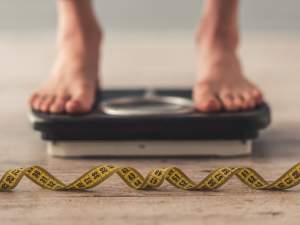We are all dependent on our habits, but it is difficult to imagine that our eating behavior also includes certain attitudes and behaviors, only they relate exclusively to food. Together with an expert, we figure out what types of eating disorders there are and how to deal with them.
Our eating behavior is understood as a value attitude towards food and its intake, a stereotype of nutrition in everyday conditions and situations of stress. The need for food is one of the primary, biological needs, and it is aimed at maintaining homeostasis. We eat to get energy, build new cells, and create complex chemical compounds that are necessary for life.
Eating disorders, which can be found in almost every person, arise due to social pressure, genetic predisposition, psychological trauma, and many other factors. But the main problem is this: few people perceive changing eating habits as a serious threat to health. Together with nutritionist Anna Ivashkevich, we understand the most common eating disorders and study their main symptoms.

Compulsive overeating
Probably one of the most common disorders that we encounter during our lives. Compulsive overeating or, in other words, stress eating.
Constant stress at work, on public transport, excessive emotionality, negativity when reading the news, and the inability to throw out all the accumulated experiences – as a result, we buy ourselves sweets, order sushi, pizza, and burgers, and fill it all with alcohol. It seems that the only sure way to get serotonin and domafin is to eat sweet and unhealthy foods.
The main symptoms of compulsive eating are similar to bulimia. In both cases, food consumption is in no way related to satisfying hunger, and against the background of an increase in body weight, performance decreases. However, the main difference is that those who suffer from bulimia try to make amends to themselves after overeating, but with compulsive overeating, people do not try to do anything to eliminate the consequences.
How to identify compulsive overeating?
You may feel guilty and anxious about the chocolate, pizza, or two burgers you ate alone, but at the same time, you will feel powerless and unable to change the situation.
It is important to distinguish between serious depression, against the background of which a person may begin to overeat, in this case, psychotherapeutic help will be needed, which will help change the worldview and give a fresh look at the exciting situation.

Bulimia
Uncontrolled eating and working off everything eaten down to every kilocalorie is what characterizes this eating disorder. In some cases, people may not even remember the very fact of eating, the volumes, and the foods that they ate.
Bulimia has the following symptoms:
- Going to the gym, where a person will work up a sweat for every crumb he eats
- Weight changes and fear of eating in public places and, especially, among friends and acquaintances
- Problems with blood vessels due to frequent exercise
- Despite the feeling of guilt due to overeating, a person may not stop and continue to eat, even if there is no longer physical hunger
Such a swing from gluttony to “punishing” oneself in the gym seriously affects the stomach. Sharp pain in the abdomen may appear, and teeth may begin to crumble because the tooth enamel has become thinner due to gastric juice that comes out with vomiting. Bulimia can become a harbinger and faithful companion of anorexia – the inclusion of laxative pills, diuretics, special induction of vomiting – all these points “help” the patient achieve his cherished goal, but jeopardize the psychological state and health, which a person does not think about in the pursuit of an ideal figure and the desire to look good.
Of course, this problem also requires the intervention of a specialist who will help identify its causes and find an adequate solution.
Anorexia
This disease cannot be determined solely by appearance; when making a diagnosis, one should take into account the emotional state and behavior of a person. The main symptoms include denial of the existence of a problem, a distorted perception of one’s body, and a constant obsessive fear of gaining weight.
Despite the fact that anorexia is considered a psychological and acquired disease, it has been revealed that there is also a genetic predisposition to it. This was established by American scientists from Pittsburgh back in 2003 when analyzing the family history of close relatives with eating disorders.
The study showed the presence of genetic loci – the presence of a connection with chromosome 1p34. From these data, it follows that weight loss mania is most likely a consequence of specific neurochemical reactions that cause eating disorders.
How to define anorexia?
In addition to the idea of becoming obese becoming a delusion, changes in the way you eat may occur. In other words, when eating a dish, a person can stand or divide the portion into several parts. Aggression, irritability, and anger may appear; this person becomes very touchy and will be constantly dissatisfied with others. Mood swings from euphoria to apathy are possible.
In addition to the most obvious symptoms, such as excessive passion for diets and sports, there are also specific ones that are not always correlated with anorexia. For example, a person who was previously completely indifferent to cooking begins to become interested in everything related to cooking, buying cookbooks, watching culinary talk shows, and organizing luxurious dinner parties and grand dinners for friends and acquaintances.
Orthorexia
An eating disorder is also a manic adherence to all the rules of healthy eating. Healthy food, excessive passion for the “correct” nutrition system, and unconscious protest can lead not only to health problems but also to a limited circle of contacts, constant quarrels with family and friends who do not share your vision and opinion.
How to define orthorexia?
A person develops a kind of phobia of “harmful” foods. Sweets, fatty foods, salty foods, foods containing starch, alcohol, yeast, caffeine, chemical preservatives, etc. are eliminated from the diet. As with other eating disorders, a person refuses corporate dinners and social gatherings, not because he is afraid to eat in the presence of others, but because there is no healthy food in restaurants and cafes.
Pica
This disease does not appear as often as others, but it is worth talking about. Those who suffer from this problem may be surprised by their preferences – they use natural washcloths, wood, chalk, plastic, raw meat – all these things cause an incredible sense of appetite in people with a similar disorder.
A perverted appetite is detected during pregnancy, a deficiency state, mental illness, and severe stress. The reason for the occurrence lies in the inability of the body to absorb individual microelements and vitamins.





